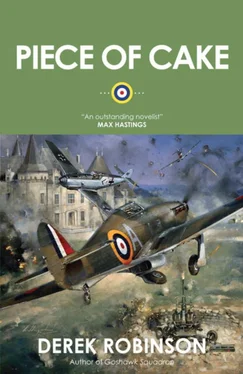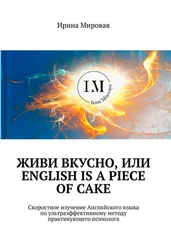An assessment of combat reports (Fighter Command said) showed that 80.8 percent of all enemy aircraft destroyed fell in the sea. Thus, of the 636 claimed destroyed, 514 were in the sea. That was the explanation.
Not everyone at Fighter Command accepted it. A week later, Dowding’s headquarters staff completed a secret analysis of five weeks’ air activity, from August 8 to September 11. It showed that for every six enemy aircraft claimed destroyed, only one wreck was found.
The pilots were not to blame for the inflated scores. They made their claims in all honesty. Given the whirlwind nature of air combat, it was all too easy for mistakes to be made—for instance when two fighters attacked the same bomber without being aware of each other. The real fault was elsewhere. Fighter Command accepted squadron returns far too readily, as if the Battle could be won on paper. By contrast the Luftwaffe scrutinized its pilots’ claims very carefully. As a result, its score of RAF losses was much nearer the mark.
Dowding has, quite rightly, received credit for his handling of the Battle. He must also take the blame for Fighter Command’s unwillingness to check claims more rigorously. Wildly exaggerated totals made punchy headlines, but to treat them as truth did not help Britain beat Germany. Some claims can be explained only by the heady stimulus of combat. On one occasion the Duxford Wing (with Douglas Bader leading 242 squadron) intercepted a raid and claimed to have destroyed 57 German aircraft; it is now known that all but eight of those raiders returned to base. On another occasion (September 9, 1940) Bader’s Wing attacked a formation of Dorniers over southwest London and claimed 19. German records (which may be incomplete) say none was lost. More to the point, British ground observers did not confirm any of the claims, and not a single crashed Dotnier was found.
It is hard to escape the conclusion that, in this area, Dowding was not the best of judges. When, on July 21, 1940, the American press cast doubt on his pilots’ claims, he retorted: “If the Germans were correct they would be in England now”—a spirited reply but no real answer: proving German figures wrong did not prove British figures right. Well after the Battle, Dowding remained indignant. His Battle of Britain Despatch (1941) said: “The German claims [of losses] were of course ludicrous; they may have been deceived about our casualties, but they knew they were lying about their own.”
Indignation is bad for objectivity. An Air Ministry account of the Battle, published in 1941, declared that between August 8 and October 31, 1940: “2,375 German aircraft are known to have been destroyed in daylight,” and a footnote emphasizes that this figure includes “only those actually destroyed” and not those damaged. “The Royal Air Force,” the account adds, “lost 375 pilots killed…”
This is the stuff of which myths are made, and even today—after so much work has been done to put the record straight—anyone who tries to write honestly about that period risks the wrath of those who prefer the simpler version. It was never my intention to debunk the Battle or to belittle the men of Fighter Command. On the contrary: the more I learned about the faults and deficiencies with which they had to contend, the greater became my admiration for their courage and resilience.
All war is an untidy and inefficient business: the weapons are never completely adequate, the plans go awry, there are faults of leadership, clashes of temperament, blunders caused by jealousy, stupidity, over-ambition. This was true, to a lesser or greater extent, of RAF Fighter Command, just as it was true of the Luftwaffe. To pretend that Dowding was a genius and Goering a fool is to see the struggle in comic-book terms; and to believe that Dowding’s pilots were undaunted, unwearied and unbeatable is to wish to create supermen out of ordinary flesh and blood. Nor does their human fallibility make their efforts any less admirable. It took at least as much courage for a young, inadequately trained, inexpert pilot to go into combat as it did for an ace; and at the climax of the Battle there were very few aces left alive.
There was a lot more to the Battle of Britain than the legend suggests. By exaggerating the triumph of the RAF, and by deflating the performance of the Luftwaffe , the legend has given Fighter Command both too much and too little credit. The truth is fairer to everyone.
Derek Robinson is a policeman’s son from a council estate who crossed the class barrier by going to Cambridge, where he got a degree in history and learned to write badly. A stint in advertising in London and New York changed that. In 1966 he moved to Portugal, wrote two unpublishable novels, returned to England flat broke, and finally got it right when Goshawk Squadron was shortlisted for the Booker Prize. That is a story of the Royal Flying Corps. Piece of Cake is something of a sequel. It follows the fortunes of an RAF fighter squadron in the opening year of World War Two. What his RFC and RAF novels—six in all—have in common is a streak of black humor and a certain debunking of the myths of war—myths that portray air combat in comic-book terms, with every pilot an ace, and every ace handsome and debonair. The truth is that all war is an untidy, inefficient business, much influenced by luck, good and bad. Wartime flying demanded a special sort of courage and resilience. The novels aim to expose the myths while they reveal the courage.
Derek Robinson lives in Bristol. When he’s not writing, he’s either publishing his best-selling guide to the local underground lingo known as “Bristle,” or playing much squash, against everybody’s advice.

An imprint of Quercus
New York • London
© 1983 by Derek Robinson
All rights reserved. No part of this book may be reproduced in any form or by any electronic or mechanical means, including information storage and retrieval systems, without permission in writing from the publisher, except by reviewers, who may quote brief passages in a review. Scanning, uploading, and electronic distribution of this book or the facilitation of the same without the permission of the publisher is prohibited.
Please purchase only authorized electronic editions, and do not participate in or encourage electronic piracy of copyrighted materials. Your support of the author’s rights is appreciated.
Any member of educational institutions wishing to photocopy part or all of the work for classroom use or anthology should send inquiries to Permissions c/o Quercus Publishing Inc., 31 West 57 thStreet, 6 thFloor, New York, NY 10019, or to permissions@quercus.com.
ISBN 978-1-62365-329-3
Distributed in the United States and Canada by Random House Publisher Services
c/o Random House, 1745 Broadway
New York, NY 10019
This book is a work of fiction. Names, characters, institutions, places, and events are either the product of the author’s imagination or are used fictitiously. Any resemblance to actual persons—living or dead—events, or locales is entirely coincidental.
www.quercus.com













